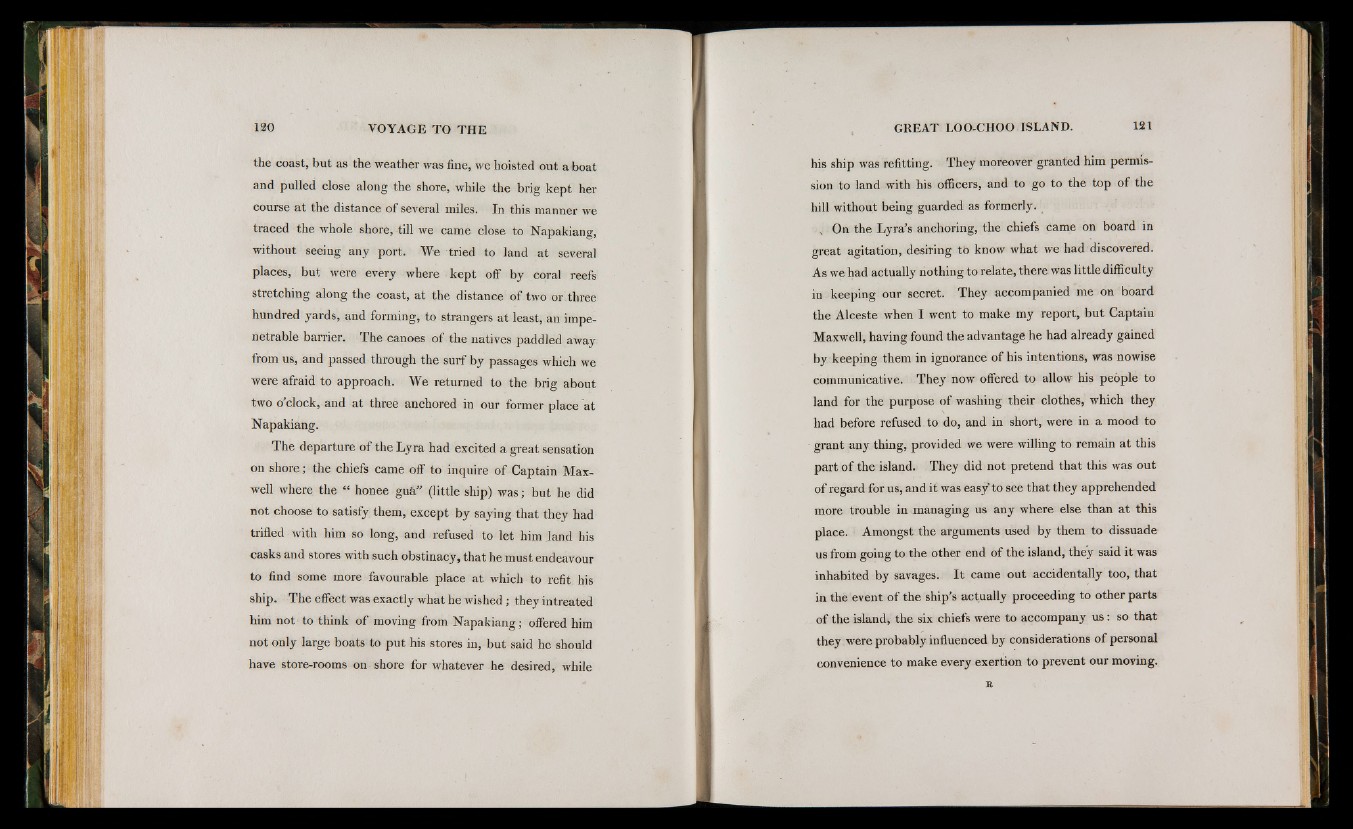
the coast, but as the weather was fine, we hoisted out a boat
and pulled close along the shore, while the brig kept her
course a t the distance of several miles. In this manner we
traced the whole shore, till we came close to Napakiang,
without seeing any port. We tried to land at several
places, but were every where kept off by coral reefs
stretching along the coast, at the distance of two or three
hundred yards, and forming, to strangers at least, an impenetrable
barrier. The canoes of the natives paddled away
from us, and passed through the surf by passages which we
were afraid to approach. We returned to the brig about
two o’clock, and a t three anchored in our former place a t
Napakiang.
The departure of the Lyra had excited a great sensation
on shore; the chiefs came off to inquire of Captain Maxwell
where the “ honee guS" (little ship) was; but he did
not choose to satisfy them, except by saying that they had
trifled with him so long, and refused to let him land his
casks and stores with such obstinacy, that he must endeavour
to find some more favourable place at which to refit, his
ship. The effect was exactly what he wished; they intreated
him not to think of moving from Napakiang; offered him
not only large boats to put his stores in, but said he should
have store-rooms on shore for whatever he desired, while
his ship was refitting. They moreover granted him permission
to land with his officers, and to go to the top of the
hill without being guarded as formerly.
| On the Lyra’s anchoring, the chiefs came on board in
great agitation, desiring to know what we had discovered.
As we had actually nothing to relate, there was little difficulty
in keeping our secret. They accompanied me on board
the Alceste when I went to make my report, but Captain
Maxwell, having found the advantage he had already gained
by keeping them in ignorance of his intentions, was nowise
communicative. They now offered to allow his people to
land for the purpose of washing their clothes, which they
had before refused to do, and in short, were in a mood to
grant any thing, provided we were willing to remain a t this
part of the island. They did not pretend that this was out
of regard for us, and it was easy to see that they apprehended
more trouble in managing us any where else than a t this
place. Amongst the arguments used by them to dissuade
us from going to the other end of the island, they said it was
inhabited by savages. I t came out accidentally too, that
in the event of the ship’s actually proceeding to other parts
of the island, the six chiefs were to accompany u s : so that
they were probably influenced by considerations of personal
convenience to make every exertion to prevent our moving.
a